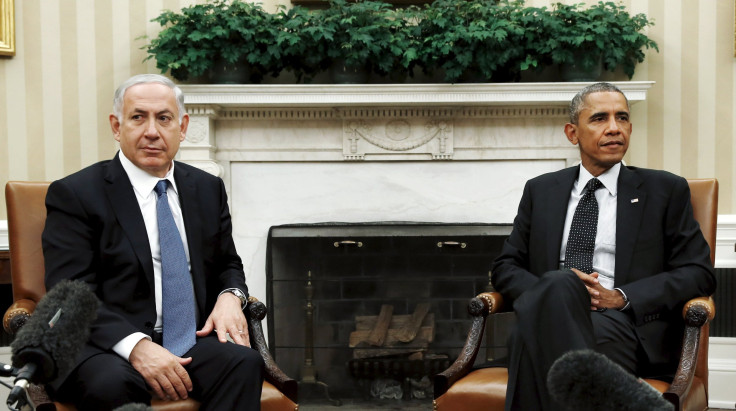Israel Spied On Iran Nuclear Deal Talks, Planned Campaign To Reshape Or Kill It: Report

Senior White House officials have learned that Israel was spying on closed-door talks between the U.S. and other world powers about Iran’s nuclear program, according to the Wall Street Journal. Israel's snooping was part of a broader campaign by Prime Minister Benjamin Netanyahu to build a case against the deal, the report said.
American officials discovered the breach when they spied on Israeli communications, which contained information about the deal that the officials believed could only have come from U.S. lawmakers briefed on the topic, according to the Journal. Officials from the Obama administration, which has worked to push the nuclear deal with Iran, were reportedly upset by the fact that Israel used the intelligence to attempt to turn American lawmakers against the deal.
“It is one thing for the U.S. and Israel to spy on each other. It is another thing for Israel to steal U.S. secrets and play them back to U.S. legislators to undermine U.S. diplomacy,” a U.S. official said, according to the Journal.
“People feel personally sold out,” another senior U.S. administration official said, according to the report, adding: “That’s where the Israelis really better be careful because a lot of these people will not only be around for this administration but possibly the next one as well.”
Netanyahu and Ron Dermer, Israel's ambassador to the U.S., also reportedly worked on lobbying Congress to help reshape or kill the deal. However, Israeli officials denied directly spying on the U.S. and claimed that they received their information from other sources, which included spying on Iranian leaders, the Journal reported.
“Ambassador Dermer never shared confidential intelligence information with members of Congress,” Aaron Sagui, a spokesman for the Israeli embassy in Washington said, according to the Journal, adding: “His briefings did not include specific details from the negotiations, including the length of the agreement or the number of centrifuges Iran would be able to keep.”
Although the U.S. has maintained that it has an unbreakable link with Israel, distrust between leaders of both nations has reportedly been growing, and Washington currently regards Israel as being one of the most aggressive spies of U.S. actions, along with China, Russia and France.
However, an official from Netanyahu’s office said, according to the Journal: “These allegations are utterly false. The state of Israel does not conduct espionage against the United States or Israel’s other allies. The false allegations are clearly intended to undermine the strong ties between the United States and Israel and the security and intelligence relationship we share.”
The spying campaign reportedly stemmed from Netanyahu’s deep-rooted suspicion of Iran's nuclear ambitions and his concerns that U.S. President Barack Obama would sign a deal with Iran without considering what is best for Israel, one of America's staunchest allies. Dermer reportedly began lobbying with U.S. officials against the deal after an interim agreement was signed with Iran in 2013.
On Saturday, American and Iranian officials cited progress in the multiparty negotiations to strike a historic deal that would curb Iran's nuclear program in exchange for an end to economic sanctions on the country. U.S. Secretary of State John Kerry, who is leading the American delegation at the talks in Switzerland, emerged with hopeful words ahead of a self-imposed March 31 deadline to draft a preliminary political agreement between the parties.
Meanwhile, Israel continued to speak out against the ongoing negotiations, with Yuval Steinitz, Israel's strategic affairs minister, calling it a "bad, insufficient deal."
"Although we are against a deal in general, until it is completed we will point to specific loopholes and difficulties," Steinitz told Reuters before meeting French officials in Paris on Monday, adding: "It seems quite probable it will happen, unfortunately."
© Copyright IBTimes 2025. All rights reserved.






















